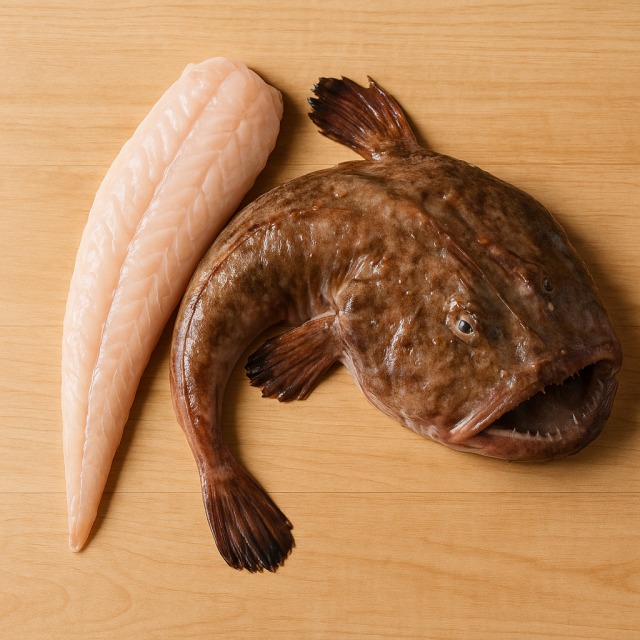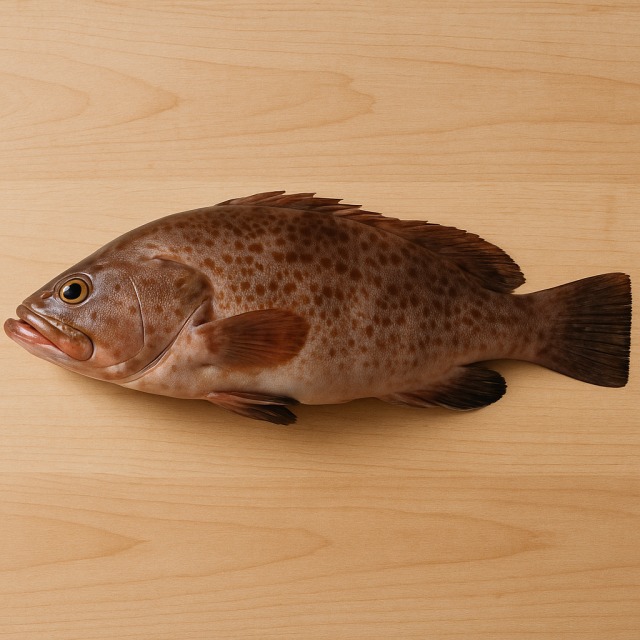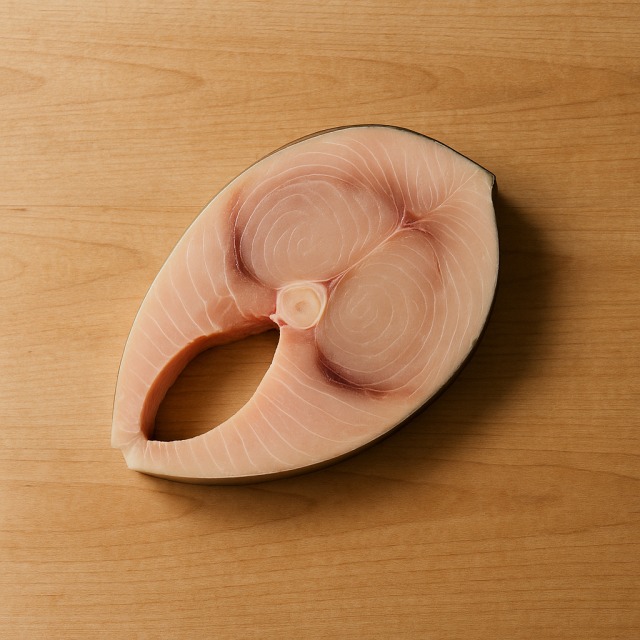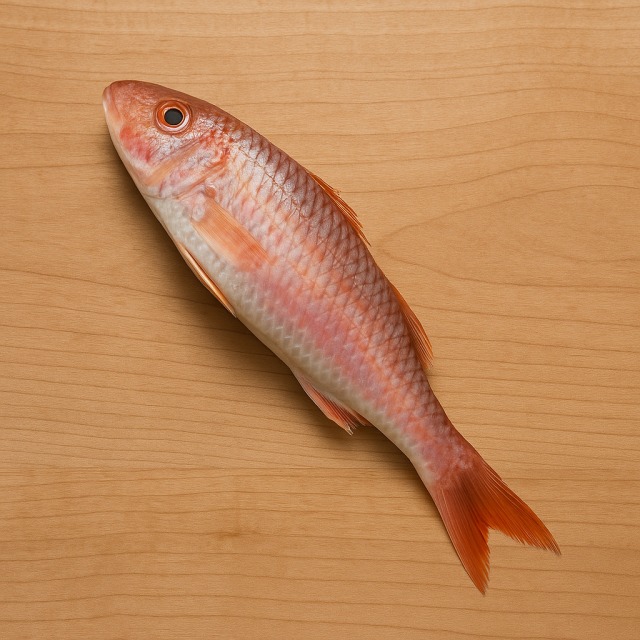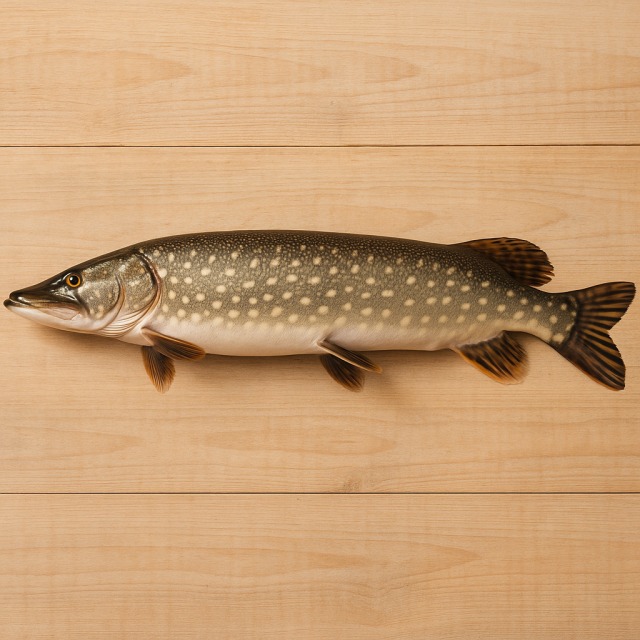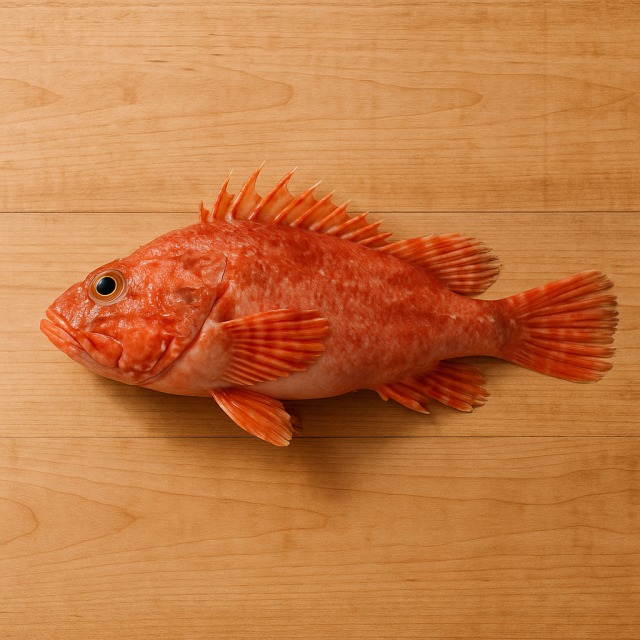Calorie Chart / Fish / Barracuda
How Many Calories Are in Barracuda?
Calculation of the nutritional value & Recommended Dietary Intake of barracuda
For g and a calorie requirement of kcal
| Calories 204 kcal | Proteins 38 g | Lipids 6 g | Carbohydrates 0 g |
| 10% | 51% | 9% | 0% |
Health benefits of barracuda
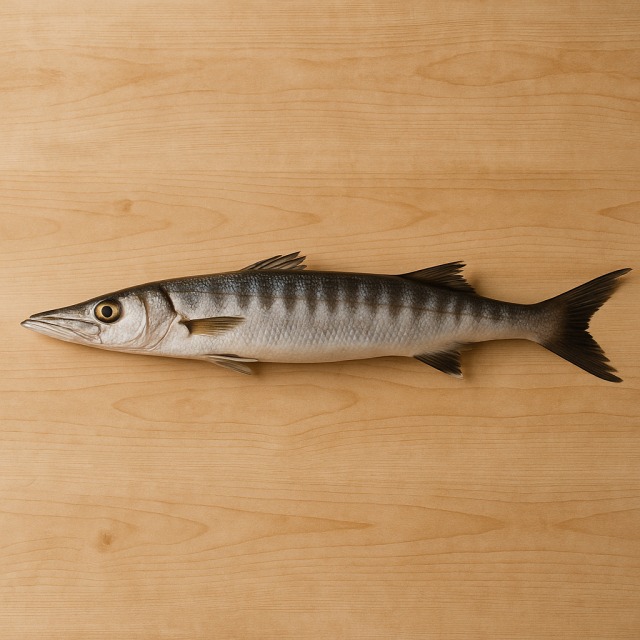
Barracuda - 100g
Calories 136 kcal
Proteins 25 g
Lipids 4 g
Carbohydrates 0 g
Barracuda is considered a moderate-calorie fish: at 136 calories per 100 g, it supplies enough energy for a meal without overloading the daily calorie budget. Thanks to its 25 g of protein for the same weight, this carnivorous fish is prized by athletes who want quality protein with relatively few calories.
The flesh provides valuable minerals such as selenium, phosphorus, and potassium, as well as vitamin B12 and niacin (B3). Omega-3 fatty acids, although present in lower amounts than in a fatty fish like salmon, still contribute to cardiovascular support. The combination of moderate calories, complete proteins, and micronutrients makes barracuda useful for muscle recovery and immune function.
Historically, barracuda has been consumed in the Caribbean and the Indo-Pacific, where spear-fishing made it accessible. However, large specimens can concentrate ciguatoxin, so moderate portions (and fish under 1 m) are advised. This ecological top predator is also interesting for its lean profile: its 4 g of lipids per 100 g means fewer calories from fat than meats such as beef steak. In short, barracuda delivers nutrients with controlled calories and a maritime culinary heritage.
Tips for incorporating barracuda into a balanced diet
If you want to keep calories under control, grill a 150 g barracuda fillet with a squeeze of lemon and serve it over brown rice and steamed broccoli. This plate stays below 450 calories while offering an excellent balance of complex carbs, lean protein, and fiber.
For a more exotic touch without exploding calories, try a Creole-style barracuda court-bouillon: simmer cubes of fish with tomato, garlic, and thyme, then accompany them with an artichoke & zucchini salad. The spices boost flavor, so you need less oil, keeping calories in check.
Those watching calories but craving richness can replace higher-fat species (e.g., mackerel) with barracuda in recipes such as fish tacos: fill a tortilla with grilled barracuda, shredded cabbage, and a light yogurt sauce. Swapping mackerel for barracuda lowers calories by roughly 60 kcal per 100 g while preserving taste and protein quality.
Frequently Asked Questions
- How many calories are in barracuda?
- Barracuda provides 136 kcal per 100 g.
- Is barracuda a low-calorie or high-calorie fish?
- With 136 calories per 100 g, barracuda sits in the moderate-calorie range—lower than fatty fish like tuna in oil, but higher than very lean choices such as cod.
- Does cooking method change the calories of barracuda?
- Yes: grilling or steaming adds almost no additional calories, whereas deep-frying in oil can double the calories of the final dish.
- How do barracuda calories compare with chicken breast calories?
- 100 g of chicken breast averages 110 kcal, slightly fewer calories than barracuda, but the fish delivers omega-3s that poultry lacks.
- Can I include barracuda in a calorie-controlled weight-loss diet?
- Absolutely; its moderate calories and high protein promote satiety. Pair it with low-calorie vegetables like spinach to keep the entire meal light.
- Are barracuda calories affected by marinating in oil?
- Marinating in a tablespoon of oil adds about 90 calories, so count those calories if you are tracking daily intake.
Similar foods
Information provided by Calorie Menu may contain inaccuracies or errors. It cannot, under any circumstances, substitute medical advice or medication.
